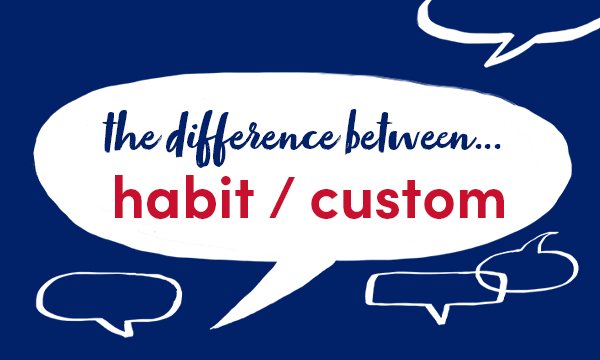This week we are looking at two words which are sometimes confused by learners of English: habit and custom.
habit

A habit is something that a person does often or regularly.
He had a nervous habit of biting his nails.
Try to get out of the habit of adding unnecessary salt in cooking.
custom

A custom is something that people in a society do at a particular time of year or in a particular situation.
The aperitivo is an old and civilised Italian custom.
It is the custom to take chocolates or fruit when visiting a patient in hospital.
Find out more in our English Usage article.
This blogpost is based on Collins COBUILD English Usage, written for learners of English. For more examples of English usage points, please visit: https://grammar.collinsdictionary.com/english-usage.
All opinions expressed on this blog are those of the individual writers, and do not necessarily reflect the opinions or policies of Collins, or its parent company, HarperCollins.




collins_dictionary_official
The home of living language. #wotd #wordlovers #collinsdictionary
Read our word of the week definitions and blog posts: